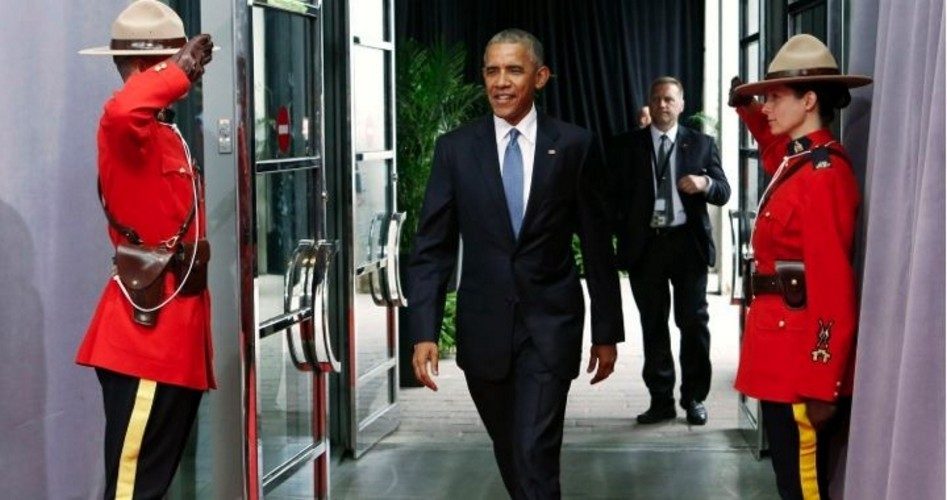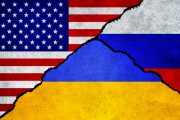
Today’s U.S.-Canada-Mexico summit in Ottawa will see a shift in focus in the wake of the Brexit vote across the pond. The so-called “Three Amigos” summit among the three NAFTA members was supposed to focus on the usual globalist laundry list of agenda items, such as reducing carbon emissions and ensuring the passage of the contentious TPP (Trans-Pacific Partnership), which has so far been ratified by none of the three governments. In a word, business as usual for NAFTA, which, after successfully selling itself as a free trade agreement to secure ratification in the United States two decades ago, has spent most of its time enacting new transnational regulations, whittling away at sovereign border controls, and, in general, setting the stage for an international political bloc such as the EU — just as its founders intended it to. But now, with the crippling blow dealt to the EU by the Brexit vote, NAFTA leaders are scrambling to reorder their priorities.
Particularly concerned with the turn of events across the Atlantic is Mexico’s President Enrique Peña Nieto, whose impoverished, crime-ridden, terminally socialist country has long benefitted economically from membership in NAFTA — at the expense of its two northern partners. For 20 years, American and Canadian corporations have been moving manufacturing south of the Rio Grande to take advantage of Mexico’s much lower wages and labor standards. Laxer border standards, meanwhile, have been an unalloyed boon to millions of Mexicans willing to enter the United States (and, increasingly, Canada) illegally to work and send the proceeds back to the cash-strapped motherland.
Small wonder that Peña Nieto has been sounding alarmed over events in Europe. With America and Canada just one Nigel Farage away from dissolving the NAFTA agreement, Mexico’s president has been calling loudly for more Mexico-Canada-U.S. political integration in the wake of Brexit, lest the ordinary people north of the border get too uppity. Peña Nieto rightly perceives that Britain’s withdrawal from the EU will be made easier by its having kept much of the EU’s regulatory apparatus at arm’s length (and in particular, refusing to adopt the euro). The only thing that could discourage the United States from bolting NAFTA would be further political and economic integration.
“The purpose of this [summit] is to renew our bilateral relationship, to give it new life, to find ways to advance the prosperity and competitiveness of North America,” Mexico’s president said. “I think what is happening elsewhere in the world [i.e., in the EU] invites us to strengthen our strategic alliance and especially to be much more inclusive.”
Peña Nieto is not the only NAFTA head of state to be dismayed by the turn of events in Europe. Both President Obama and Canada’s Prime Minister Justin Trudeau were opposed to Brexit. And both men — establishment liberals to the hilt — share Peña Nieto’s interest in strengthening NAFTA before populists in both countries can undo it.
High on the agenda of today’s summit is ratification of the TPP, which Mexico’s Senate is expected to ratify later this year. There also appears to be a parliamentary majority in Canada in support of the deal. In the United States, on the other hand, opposition to the TPP has been fierce, with presumptive Republican presidential candidate Donald Trump strongly opposed to it.
Another prominent agenda item for today’s summit is the creation of a North American carbon market, which will consist, for the moment, of Quebec, Ontario, California, and all of Mexico.
And as always, borders are a concern, especially for Mexico, whose state-encouraged illegal immigrant populations in the United States and Canada have provoked a political backlash in both countries. Canada has imposed visa restrictions on Mexico after widespread Mexican abuse of generous Canadian asylum rules — but Trudeau is pledging to lift those restrictions later this year.
In the end, political elites have little new to offer for this year’s summit aside from the usual platitudes about “building bridges rather than building walls.”
Judging from the Brexit results and the Trump phenomenon here at home, the citizens of the United States and Britain, at least, are having none of it.
Photo of President Obama at Three Amigos summit: AP Images


